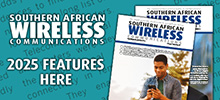19 November 2024
Picture courtesy of Motorola Solutions
A wide range of broadband applications are already in use by critical communications users. However, the majority of these applications are currently deployed over commercial networks, with over-the-top, best-effort Quality of Service (QoS). As broadband data applications become increasingly important for day-to-day operations, users will demand their applications to be delivered with mission-critical QoS.
“The deployment and use of mission-critical broadband applications will greatly increase the effectiveness of first responders and the efficiency of mobile worker,” said Tim Clark, TCCA Board member and leader of the task force that created the survey and the white paper. “The findings from our market survey provide valuable insights into the requirements of Public Safety, and other critical communications users, regarding their current requirements and future expectations.”
TCCA is a strong advocate of a standards-compliant approach to help ensure interoperability and multi-vendor choice - critical communications users should insist on mission-critical applications that comply with 3GPP specifications. The wide range of applications that the survey respondents considered to be mission-critical may mean that changes and additions to the 3GPP specifications are necessary, beyond the current Mission Critical Push to Talk (MCPTT), MCData and MCVideo definitions.
“Adhering to MCX standards and certification will be crucial for ongoing multi-vendor innovation of applications and most importantly interoperability intra and inter agency, and where required, across borders,” said Kevin Graham, TCCA CEO. “Harmonising the approach will ultimately lower the risks and efforts by all stakeholders and deliver richer operational capability into the hands of critical industry end-users.”
The survey shows the need for broadband application developers to understand mission-critical requirements and design applications for use on different types of devices. The survey also highlights that MCPTT remains the most important capability for critical users, with MC video capability gaining more importance in public safety use.
Unsurprisingly, the top requirements of mission-critical users are service coverage, application reliability and security – and the management of applications is seen as a key challenge.
The survey was targeted at members of TCCA and other critical communications sector associations. The market survey respondents represented a wide range of organisations from around the world, with an emphasis on public safety first responders - police, fire and ambulance. Representation from other organisations, including border guards, utilities, rescue, transport, coastguards and defence, ensured a comprehensive range of survey responses.
The white paper Mission-Critical Broadband Applications Market Survey can be read here.






